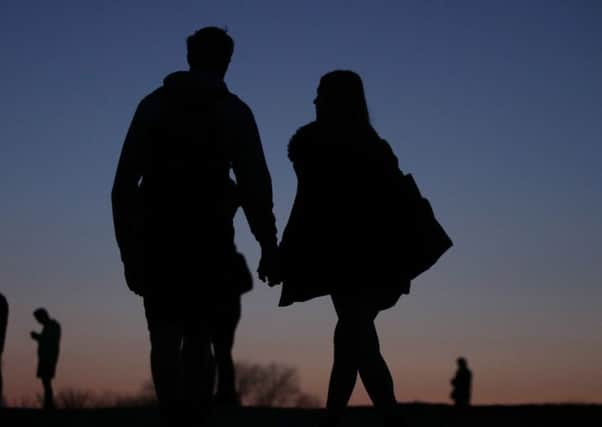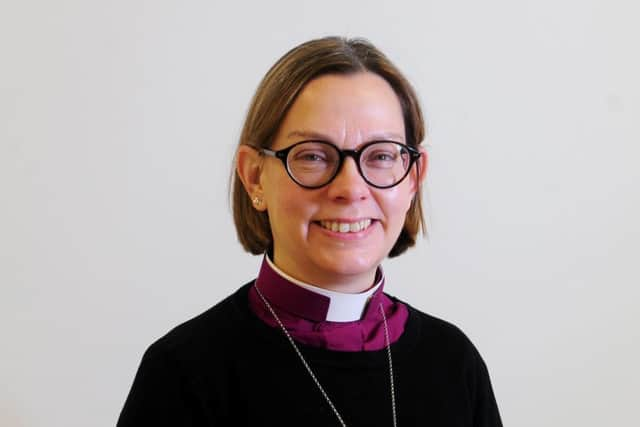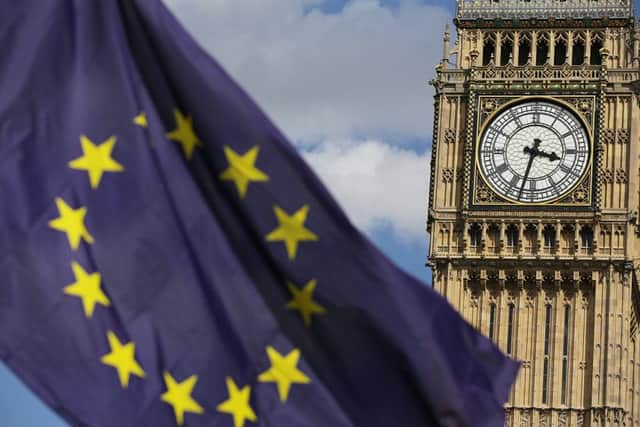Why respectful discussions between farmers and Extinction Rebellion protesters give me hope for the future - Bishop of Ripon


The theme of this year’s conference was ‘‘Growing a Healthy Society’’, and as delegates gathered from the four corners of our nation (and beyond), the mood was mixed.
Last year the conference theme had been ‘‘A world of opportunity’’. Brexit awaited, and the conference directors were keen for those who work in the farming sector to think beyond the anxieties and uncertainties to the possibilities and opportunities that lay beyond.
Advertisement
Hide AdAdvertisement
Hide Ad

Yet here we are at the start of 2020 – Brexit still hasn’t happened, but the landscape post-General Election has certainly upped the stakes towards our exit from the European Union.
However the issues haven’t gone away: we don’t know for sure what our relationship with Europe will look like, and from a farming point of view there isn’t much clarity on the detail of potential trade deals.
For me, one of the most helpful sessions during the conference was the presentation by Professor Fiona Smith of the University of Leeds who laid bare the prospect of an unsettled trade environment.
Advertisement
Hide AdAdvertisement
Hide AdOne of her closing questions was this: ‘‘What will the UK’s attitude to risk be going forward?’’


More on that in a bit. Back to Kamal, and his perspective from war-torn Beirut. Kamal has a remarkable story to tell. He founded the Souk el Tayeb, a market at the heart of Beirut with an aim to celebrate food and traditions that unite communities, promoting farmers and their food, all sustainably produced.
For Kamal, agriculture is about people and relationships, and how we choose to use the privileges we have for the common good. ‘‘If you have even a little bit of power, money or knowledge, share it,’’ he said. ‘‘What use is it if it kept to yourself? Share it and expand for others and make something better.’’ My reflections listening to Kamal focused on the fact that he had managed to achieve so much in the face of incredible adversity, and many of those challenges haven’t gone away.
Banks are locked down in Lebanon, he has limited access to his money. Yet none of this deters him. It’s an inspiring story. I wondered what I could learn from it in my own life and work, and the people I encounter in the rural and market town communities that are scattered across the landscape I traverse each day?
Advertisement
Hide AdAdvertisement
Hide AdKamal’s invitation for us to ‘‘build on what brings us together’’, touched another key theme of this year’s conference, one that surprised no one: mental health. What was surprising however was the willingness to discuss it, and the openness with which conference delegates shared their own stories of wellbeing.
In the panel discussion I was part of, on food, faith and farming, I shared how a phrase I learnt from the indigenous people of New Zealand, the Maori mirrored some words from Jesus in the New Testament.
The phrase when translated says that ‘‘a life fully lived begets life’’. Jesus told his followers that he had come so that they (his followers) might ‘‘have life, and have it abundantly’’.
Advertisement
Hide AdAdvertisement
Hide AdFor me this means that our lives are inter-woven with each other, in times of stress, and in times of joy. The point is that bearing with one another matters, because if I flourish then my neighbour needs to flourish too. It cannot be at the expense of my neighbour.
That food and hospitality often lies at the heart of sharing and flourishing is an ancient truth. Just look at the impact of the Jo Cox Foundation’s ‘‘great get together’’ initiatives, or the several hundred folk who pile into the café (myself included usually) at Fountains Abbey after the Saturday morning Parkrun.
It was telling this year that a sense of concern for and solidarity with Australian farmers book-ended the conference. ‘‘No man is an island,” wrote English poet and cleric John Donne in the first quarter of the 17th century, which was indeed a century of national upheaval.
Nearly 400 years later, we might well ask, ‘‘what has changed?’’ We are more connected than we ever have been, yet loneliness and isolation are hallmarks of our current age.
Advertisement
Hide AdAdvertisement
Hide AdTo return to Professor Smith and her question about risk, I wonder if the answer lies in the extent to which we are willing to look beyond our own comfort zones or circles of friends, and listen to those whose views we might not wholly agree with?
There is risk in that for sure, but one of the surprising sights of the conference were the cheerful and robust exchanges between delegates at the Extinction Rebellion protesters who greeted us at the beginning and end of each day.
There was no antagonism, only a desire to find common ground. Different views, absolutely, but respect and courtesy characterised the conversations. For me, it showed that it is possible to speak through our differences. ‘‘Build on what brings us together’’; thank you Kamal for your wisdom. I hope I can work on that this coming year.
The Right Reverend Dr Helen-Ann Hartley is the Bishop of Ripon.